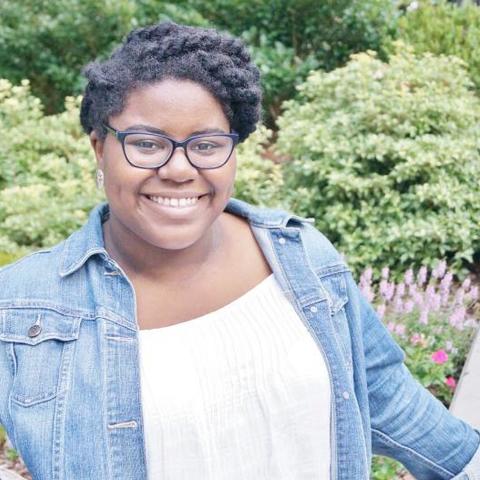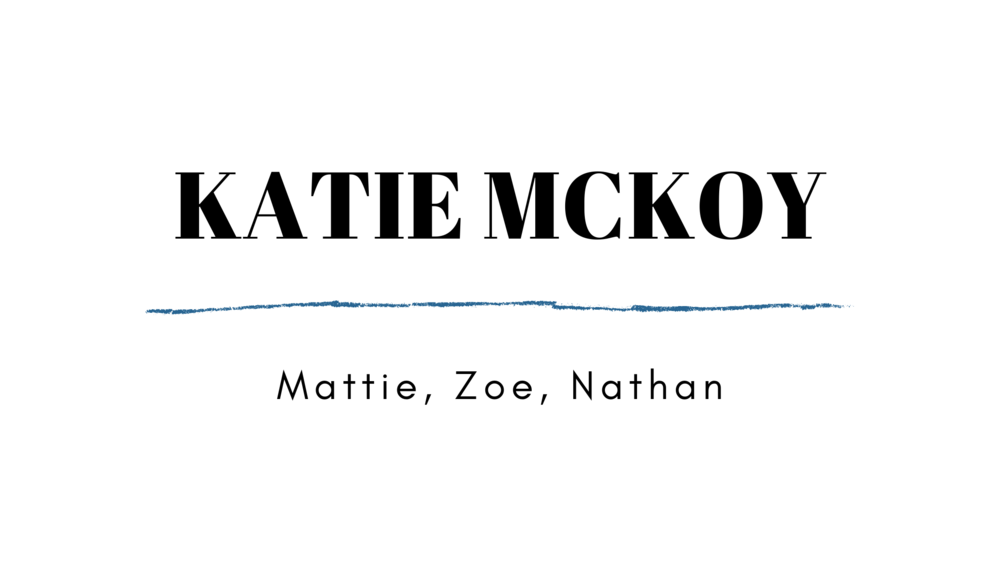
Section Branding
Header Content
A State Of Crisis: Georgia Families Affected By Proposed Disability Budget Cuts
Primary Content
Come July 1, families in Georgia already struggling to provide quality care for their children with disabilities will brace for the elimination of programs and services they need most, provided by the Georgia Department of Behavioral Health and Developmental Disabilities, due to state budget cuts related to coronavirus.
DBHDD serves as Georgia's self-proclaimed "public safety net" by providing five hospitals, resources and services to uninsured or under-insured people with mental health challenges, substance abuse disorders and intellectual and developmental disabilities. However, proposed cuts will also reduce funding in other areas including; community-based services, Medicaid waiver programs and vocational rehabilitation.
These provisions exist to serve communities who need supplemental assistance from the state and its providers to sustain a quality life, but the consequences to follow if the Georgia Senate approves Georgia DBHDD's budget plans for the fiscal year of 2021 would be detrimental.
Proposed cuts include; eliminating beds in addictive treatment facilities, downsizing and furloughing staff, and full eliminations of programs and services.
Among the $122.1 million cuts in state funds, agencies that exist to serve people with intellectual and developmental disabilities within DBHDD are also bracing for several service and program eliminations. Assistive technology expenditures will be reduced, along with those for the Marcus Autism Center and money for intensive family support.
Thousands of families with disabilities in Georgia who rely on DBHDD services are anticipating jarring changes to how they will create and maintain their wellbeing, but Georgia Advocacy Office's Joe Sarra said these budget cuts will create tremendous harm for those with disabilities and their families.
"Lack of access to readily available, adequately funded services places children and young adults who experience developmental and/or psychiatric disabilities at risk of institutionalization, out of home placement and unnecessary engagement with law enforcement," he said.
Institutionalization, in this context, is the process of displacing children and adults with disabilities to psychiatric residential treatment facilities (PRTFs). Those with disabilities in these facilities are isolated from society and are not provided with an enriching curriculum to improve social behaviors or increase mental and physical capabilities. As a result, institutionalized people with disabilities are disproportionately at higher risk for abuse, neglect, and regression.
"As a country, historically we know [institutionalization] does not work. That goes all the way back to the Willowbrook investigation that took place in the 70s up in New York when people realized what was happening to folks with developmental disabilities, when they were put into these settings," Sarra said. "Everybody thought they were going there, and they were being taken care of, but that was actually not not what was happening.
Georgia Advocacy Office's litigation director Devon Orland said the consequences of institutionalizing children with disabilities can be debilitating.
"[Children] need love, they need developmental stimulation, [and] they need support," she said. "Kids end up more developmentally delayed and stunted if they don't end up abused or neglected."
Trading custody for care, a term Sarra first heard in 2003 to describe underserved or unserved and overwhelmed families relinquishing care to the state because of lack of services to support people with disabilities, is something that concerns him.
"With that, [parents and/or guardians] think that what happens is, 'Well, if I give my kid to the state, then the state is going to be forced to provide these services, right?' But that is, in fact, not true because, again, the services are not adequately funded and readily available," he said. "Relinquishing a child to the child welfare system does not mean that they're going to get services, and that's why we end up with children that use a lot of challenging behaviors that end up in hotel rooms that are staffed 24/7 by personnel."
The Georgia Division of Family and Children Services (DFCS), the system that takes in relinquished children, is already proposing to close over 50 offices around the state and cutting funds in several areas that exist to help children and families in need.
Sarra said DBHDD has historically been underfunded and overworked, and if these budgetary trends continue, children will be at the highest risk.
"So now we start closing offices [and] start furloughing staff hours," he said. "All that is doing in my mind is creating a situation in which no child is going to get their needs met, be it a child with a disability or a child without a disability."
Orland said, compared to other states who provide more adequate disability services such as Massachusetts or Pennsylvania, Georgia expresses a clear message: Don't come here.
"So many states do it so much better," she said. "I think the messaging is, if you happen to be a child who experiences poverty and your parents don't have the money or the private insurance to pay for things, then you don't have value."

Katie Mckoy is a mother of three children with disabilities in Moreland - 43 miles southwest of Atlanta. Her son, Mattie, has a disease called spinal variant neurofibromatosis that causes tumors to grow on his spine. He has limited motor function in his limbs and is slowly losing the ability to walk. Family support funding provided by DBHDD has afforded him a special medical bed that prevents him from falling out while sleeping, a stroller for trips outside the home and feedings tailored to Mattie's diet.

But Mckoy isn't necessarily worried about her family if the proposed budget cuts are approved. She's terrified of what will happen to other families who are underserved and need more help. She said the financial blow would be life-threatening for them.
"I don't want to see another Diana Elliot where she has no other choice but to take her baby to Grady because she had nothing else, and she was scared for him. Those are the families that really haunt me, and I don't want to see them happen," she said. "I don't want to see families like the mom of a 9-year old with autism in Florida who killed her son because she had nothing else. I don't want to see murder-suicides."
As a response to initial budget cut proposals, Mckoy and other parents in the disabled community banded to create a petition to save Georgia's disability services for families who need them most.
"We found out about the budget cuts through social media," she said. "We looked at everything, and we got together and said, 'No, this is not right.' So I had help with wording the petition, with getting the word out, with spreading it."
Parents Judy and Ken Hammett in Stone Mountain are featured in the petition's call to action, a duo Mckoy admires.
The Hammetts have adopted and fostered medically fragile children since 1994, and they're now in their mid to late 70s with two adopted children, Shawnee, 24, and Blake, 7. The Hammett family does not receive family support services, a non-entitlement program that would provide unique services through Individualized Family Support Service Plan.
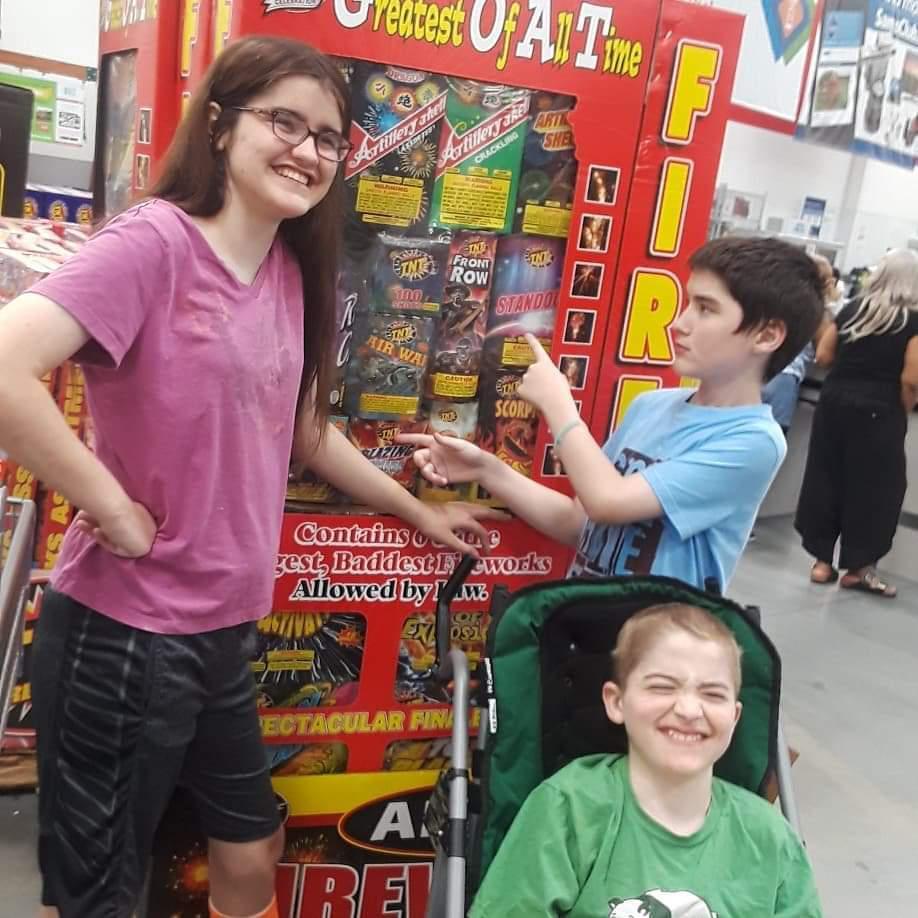
"They take the family, the kids who are dying that nobody else wants, who will just rot at Children's Healthcare of Atlanta all alone - well, basically with the nurses, but no one could be there to love them, no one to be their voices," McKoy said. "No one would be there for them as they die. They've done this for 30 years. And now as they're getting older the state's basically saying, 'Okay, thoughts and prayers to them,' and that really makes me angry."
Mckoy said that the state's pattern of defunding disability services makes one message clear - the state doesn't care about families with disabilities. The message isn't verbal, but families with children who need supplemental support hear the impact.

"It is sending a clear message that we do not matter, and keeping our children out of institutions and keeping our family home is not a priority for these legislators. And if something happens, they don't care if another Diana Elliott happens," she said. 'They don't care if a family caregiver is overwhelmed and then murder-suicide happens. That just doesn't matter to them. They're not saying it with their words, but by doing this and with this budget, their actions are speaking volumes."

Judy was a foster parent in Mobile, Ala. for Catholic Social Services before she married Ken in 1994 and moved to Georgia. When they became foster parents together, a foster care supervisor asked if they were interested in caring for medically fragile children. For them, the answer was simple.
"We said, 'We just want the children that need us [and] the babies that need us the most," Judy said.
Their first fostered medically fragile child was Bianca, or as Judy and Ken called her, Miss B.
"We always say that Bianca - Miss B as we called her - that they slipped her in on us because they said she was medically fragile, but really all she needed was some speech therapy and a little bit of physical therapy because she was a preemie," Judy said.

Together, the couple fostered 35 children - most were medically fragile - and adopted four medically fragile children. Because of the children's sometimes irreparable medical challenges, Judy and Ken have experienced loss several times.
"The first one left us in 1999. We don't ever get over that. It doesn't matter how many years it's been," Judy said. "They say, 'Oh, you've been grieving long enough.' Wait until you lose a child. You don't ever stop. But you have to go on. And I know I have some beautiful guardian angels up there."
Kimberly's death in 2019 affected Judy the most. Kimberly was glued to her hip and people always referred to them together - Mama and Kimberly.
"She'd say, 'Who does Kimberly love?' and I'd say, 'Mama,'" Judy said. "I'd say, ‘Who does Mama love?' and she'd say, 'Kimberly.'"
Kimberly embodied joy and spread happiness to everyone she met. She'd wake up from her surgeries laughing. Her classmates at Tucker High School adored her, and she was nominated for homecoming court the year before she died.
Their daughter Kenya's death affected Ken the most. She would tease Judy, but whenever she saw Ken, she would light up.
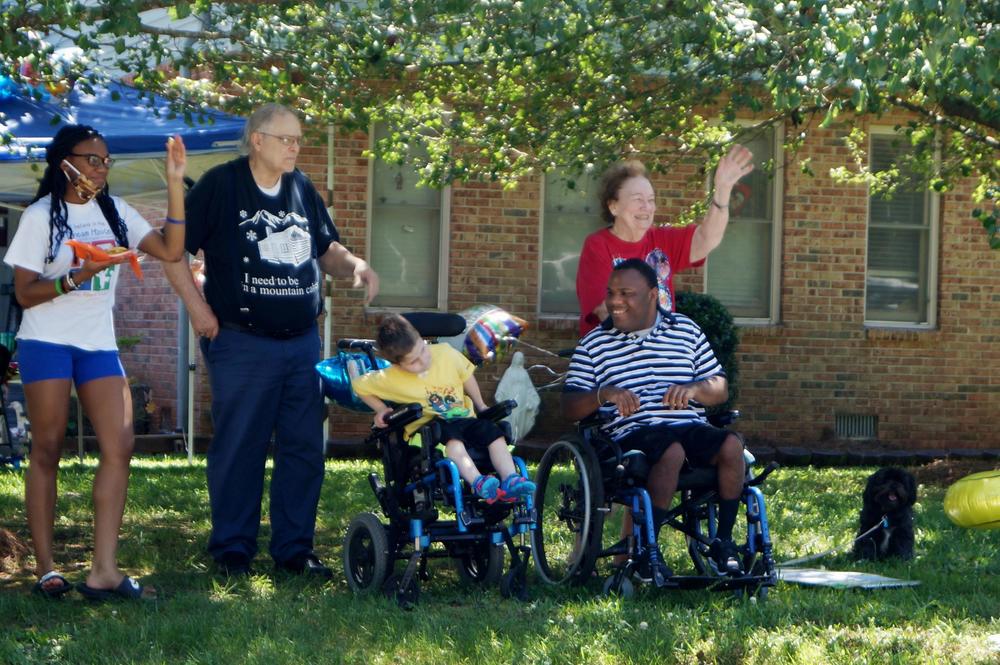
"I'd say, 'Kiki, how are you?' [and] she'd turn her head the other way and laugh. I knew she was kidding me," Judy said. "But if my husband or my oldest daughter walked in the room, you would have thought God walked in there. She just loved them to death."
Judy and Ken never stopped mourning the loss of their children, and Judy said it will never get easier. Sometimes, she looks over to Kimberly's bed in hopes that she'd be there.
"So far, [God] hasn't sent her back to me," she said. "I have a lot of questions to ask Him when I get [to heaven], but that's the one thing you face when you bring home a medically fragile child."
Among the dozens of children Judy and Ken have parented, they adopted Shawnee and Blake along the way.
"Shawnee was born weighing 21 ounces at 23 weeks. Now he's about 175 pounds, strong as an ox," Judy said. "I keep telling him I'll put him on my Alabama football team as the quarterback. Those arms are something else."
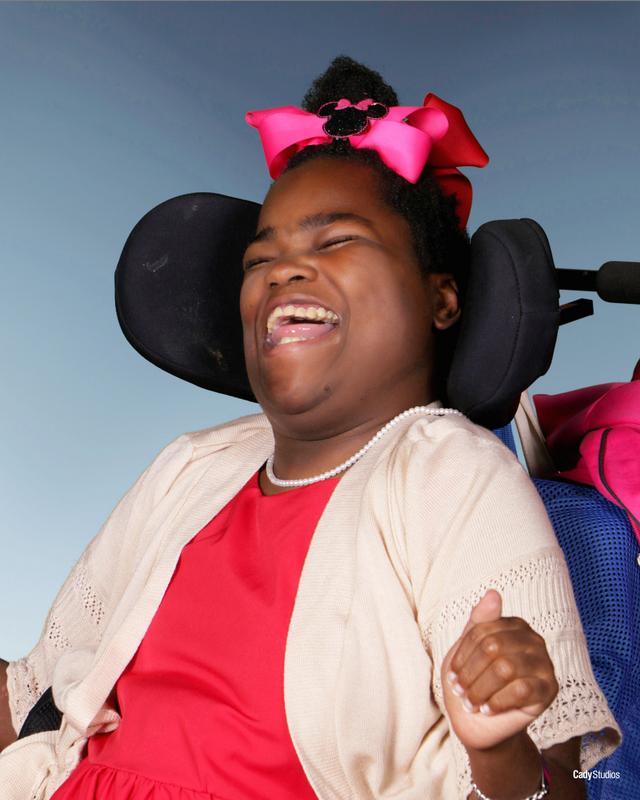
Shawnee came to the couple as a baby with feeding tubes and needing oxygen. Now a 24-year-old man, his wheelchair is the only medical equipment he requires, and he also needs incontinence supplies. Blake has a tracheostomy tube and a feeding tube, so he can't eat by mouth, and he's nonverbal.
The Hammetts have been making the most out of their situation with Shawnee's Supplemental Security Income (SSI) and Medicare coverage, but it's not enough. He's on the waitlist for the New Options Waiver (NOW) and the Comprehensive Supports Waiver (COMP) programs, but proposed budget cuts and allocations of funds to increase support to those who already receive those waiver benefits won't provide Shawnee the care his parents said he needs.

"Why do I even bother to vote? Because no matter who we think to put in, nobody seems to care," Judy said. "I mean, it doesn't make any sense. I guess we're sitting around waiting for somebody to say, 'No, your children matter.'"
Judy and Ken have been parenting and fostering medically fragile children since the mid 90s with little to no state aid, with several expenses coming out of their own pockets, but they accepted the challenge and provided their children with the most enriching lives.
"We'd save up to try to take them out, [and] we took a trip to Disney World. We looked like a train coming, pushing four wheelchairs. And we even managed a car seat on the back of one of the wheelchairs for the babies because we couldn't push him with a wheelchair," Judy said. "Everybody knows it's us when they see us coming."
Judy and Ken are respectively 76 and 78 years old. Lifting Shawnee out of his wheelchair to shower or change his diapers has gotten more difficult. They know they'll eventually pass away, and they worry about Shawnee's and Blake's wellbeing when they're gone - considering Georgia's trend of underfunded disability services.

"When Ken and I leave this world, we want to make sure that Shawnee is taken care of. Whoever the family is [that would be] taking care of him ... nobody's going to be able to afford all those things if we couldn't," Judy said. "And I always want him and Blake to have what they need. They don't get everything they want, but they get everything they need. They actually deserve it."
Judy said, before she passes away, she wants her children - fostered, adopted and biological - to know she made a difference.
"I've always said I want my children and the people to know ... that she loved and she tried and that she cared," she said. "I want them to remember how much we loved our biological and our adopted and our foster children, how we love our family and friends, and that we've done this because of love, and that we're not great people or anything. We just love."

Wendy Beasley in Jonesboro is a mother to Connor, a 22-year-old with autism currently waiting for his virtual high school graduation ceremony and a chance to develop self-sustaining skills at the Cave Spring Center, a vocational school in Cave Spring - 82 miles northwest of Atlanta.

Like Judy and Ken's child, Shawnee, Connor has been on the waiting list for the NOW/COMP waiver for several years. Though the new budget proposals have increased funding for the waivers, it's still very unlikely Connor will be able to receive one.
"It's kind of bleak, and you're looking at it wondering, 'OK, what are we gonna do if there's no chance of getting one of these unless somebody passes away?'"
While waiting to be bumped up on the NOW/COMP waiver waiting list, Connor was still able to have a fulfilling life and socialize with others outside the home with the help of family support funding. With a maximum of $3,000 a year to use from family support services, he's able to go to Camp Dream in the summer, compete in Special Olympics and play baseball in the Little League Challenger Division.
"There's no hope of him getting on a waiver for at least another year or more, and you're going to cut the family support funding so that we don't have that little bit of a grant every year to help pay for things," Beasley said. "What's he gonna do?"
Connor is currently on the waitlist to go to Cave Spring Center, a vocational school through the Georgia Vocational Rehabilitation Agency (GRVA) that helps adults with disabilities develop personal character, work ethics, and job skills so they can become "successfully employed, contributing members of their communities."
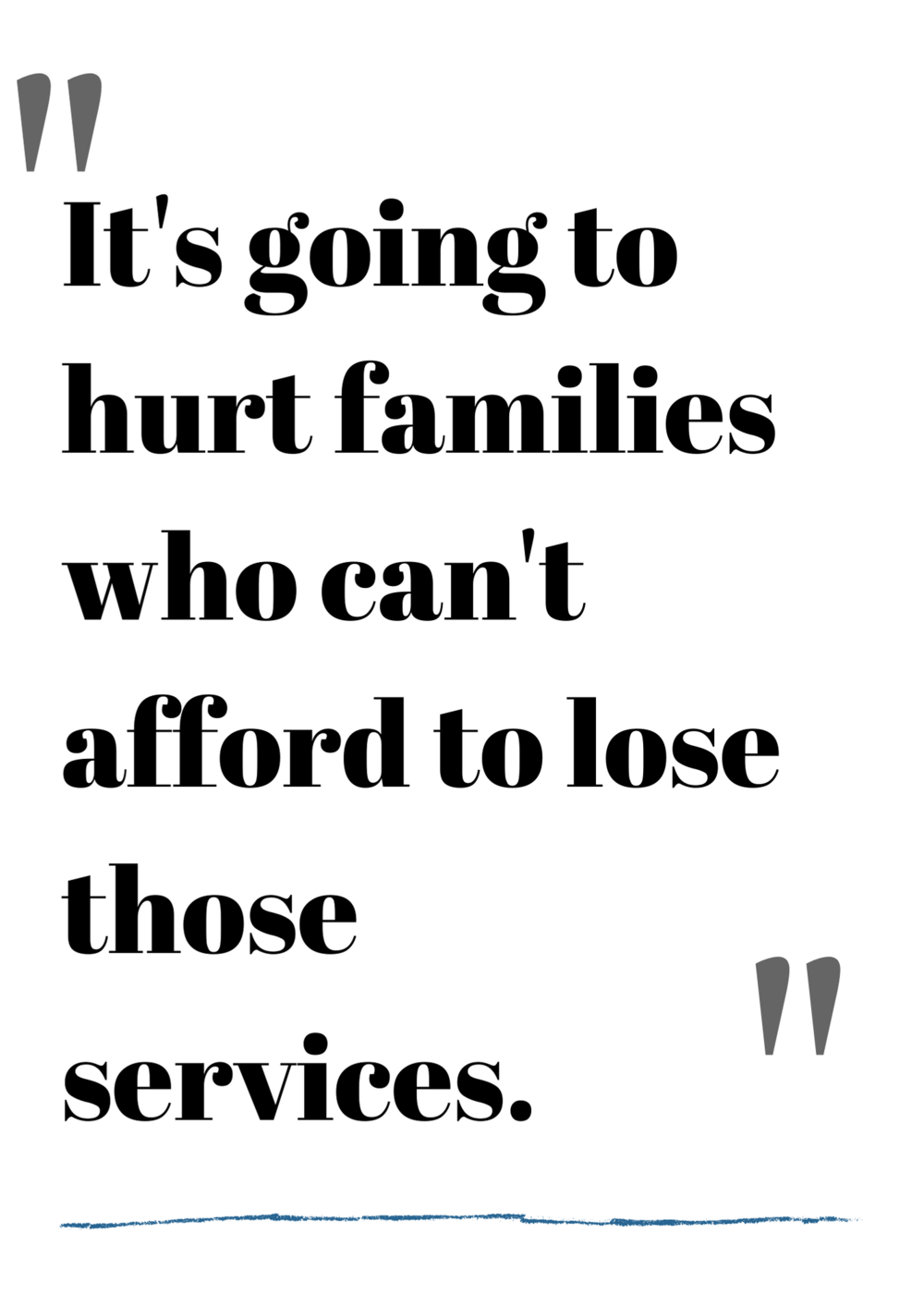
The GRVA is separate from the DBHDD, but Beasley worries about the agency's funding affecting Connor's prospects after he graduates high school.
"That would be an awesome experience and hopefully, [it will] get him some job skills so he could hold a job or supported employment or something," she said. "If we don't get that, if they deem him not a good candidate for it, then without a waiver, I have no idea what will be because we can't afford to pay for a day program somewhere for him to go every day or to pay people to take him out, even just like to the movies and to dinners to be social."
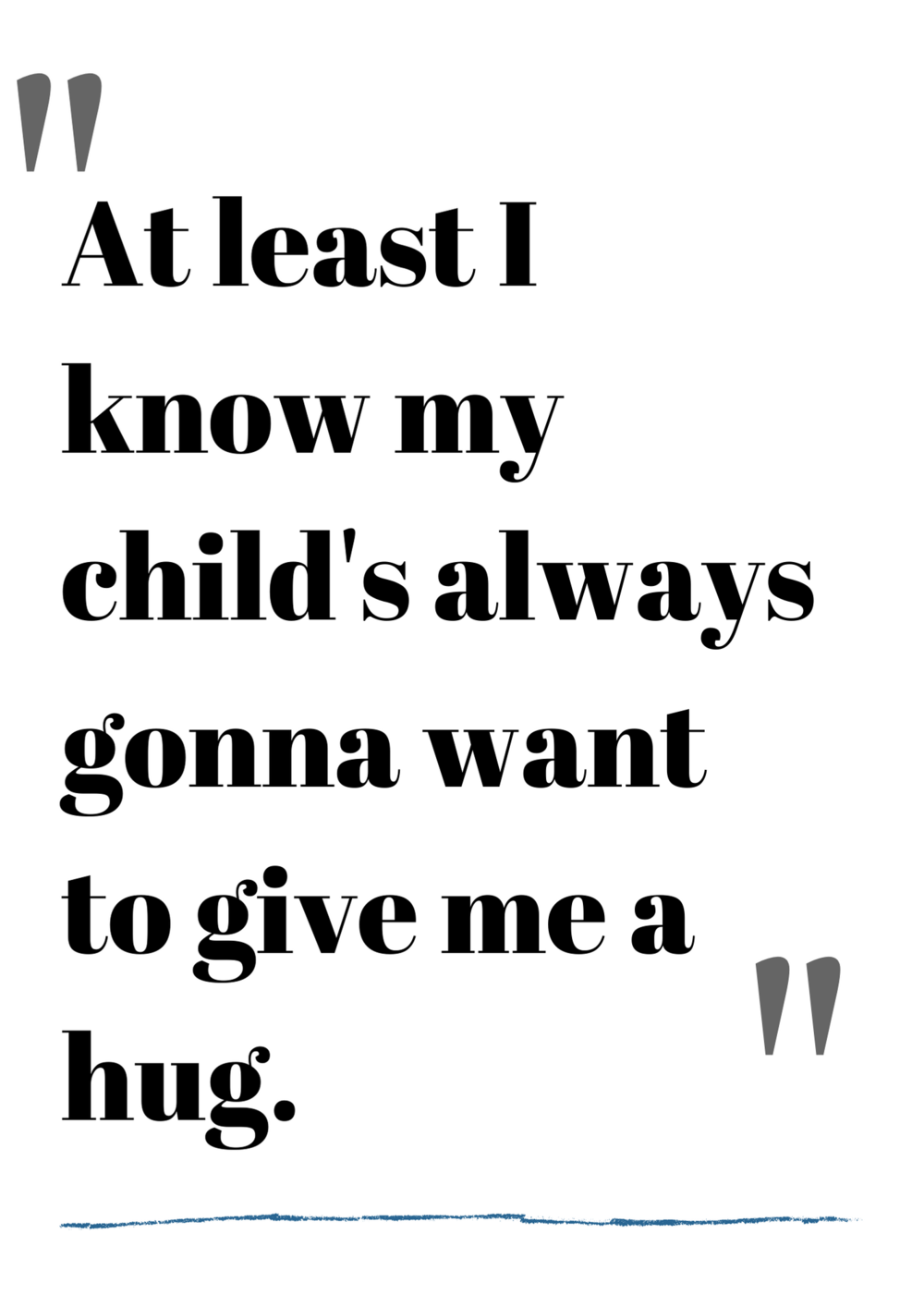
People like Connor depend on state-funded resources and fair access to them, but the coronavirus pandemic exacerbated pre-existing cracks in the disability services system. If Connor can't go to Cave Springs Center or participate in activities that stimulate his mind and encourage independence, he and his family would be at an extreme loss.
"For people like that - without these services, without the waivers and all - what happens to them? It takes away their ability to function in our communities, [without] the proper support. Then all the support that they can get through the waivers, without those supports, what are they going to do?" Beasley said. "Our government has a lot to look at [and] where to spend the money, but a majority of it can't be on the backs of our most vulnerable population. It's going to hurt families who can't afford to lose those services."
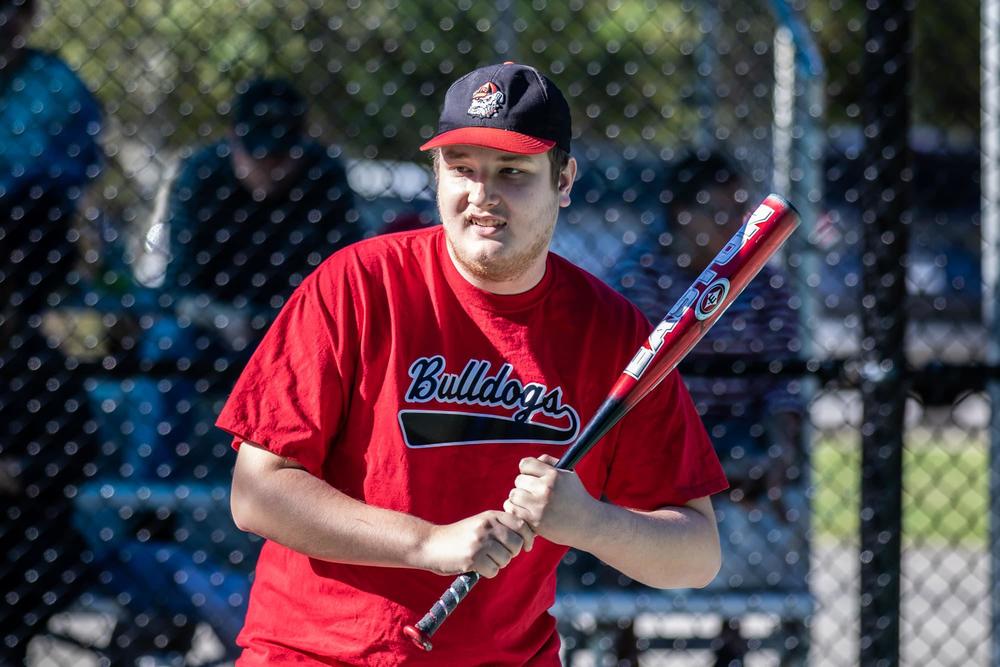
Beasley knows Connor will be childlike in many ways, and there are unavoidable challenges he will face, but being his mother comes with immeasurable rewards.
"I know one of my biggest [rewards] is he's always going to want to hug his mama. I get lots of hugs and lots of snuggles," she said. "He might be 6 feet tall and I'm only 5'2", but if he could, he'd still fit in my lap. And that is the one thing I tell everybody. At least I know my child's always gonna want to give me a hug."

Sandra Agazie is a nurse and single mother of three children. Her daughter, Lindsey, was first diagnosed with pervasive developmental disorder (PDD) by the Marcus Autism Center at 2 years old. Now 17, Lindsey is exhibiting life-threatening behaviors, and Agazie is scrambling to get her adequate care amidst the large funding cut proposals in 2021.
When Lindsey was younger, she didn't have any behavioral issues, but when she turned 15 and began puberty, Agazie noticed a dramatic change in her behavior.
"At 15,16, [she'd be] wetting the bed and all of that and destroying [and] cutting clothes, my clothes, her brother's clothes. She'd get scissors, and we had to take that away from the home, knives, scissors," she said. "Things just got worse."
Agazie never followed up at the Marcus Autism Center when Lindsey was first diagnosed with PDD-NOS as a toddler, but she took her daughter back to the facility in 2019 when she was officially diagnosed with autism and prescribed antipsychotic medication.

When school shut down due to the spread of COVID-19, Lindsey's behaviors intensified. She'd put on her school uniform and try to go to school after Agazie tried to explain to her that school was dirty at the time, and she couldn't attend. She'd rip clothes and damage furniture. Then, she started to walk away from home.
"The first day it happened, I woke up one morning, [and] she was gone," Agazie said. "She wasn't in her room. I don't know where she went. I had to call the cops looking for her."
The first time Lindsey left, the cops found her at an apartment complex an hour away, knocking at someone's door. They took her to Southern Regional Medical Center, but they weren't able to treat her.
"There's nothing they can do for her because she's autistic," Agazie said.
After that, Lindsey kept leaving home. She'd unlock doors and, when Agazie would be asleep or otherwise unaware, end up in dangerous situations. Agaizie would immediately call the police and follow Lindsey by car and try to coax her into the car, but she'd refuse to get in. Another time Lindsey walked away, Agazie and the police located her in someone's apartment. The tenant first denied Lindsey was in the home, but K-9 units found her playing a guitar in a room.
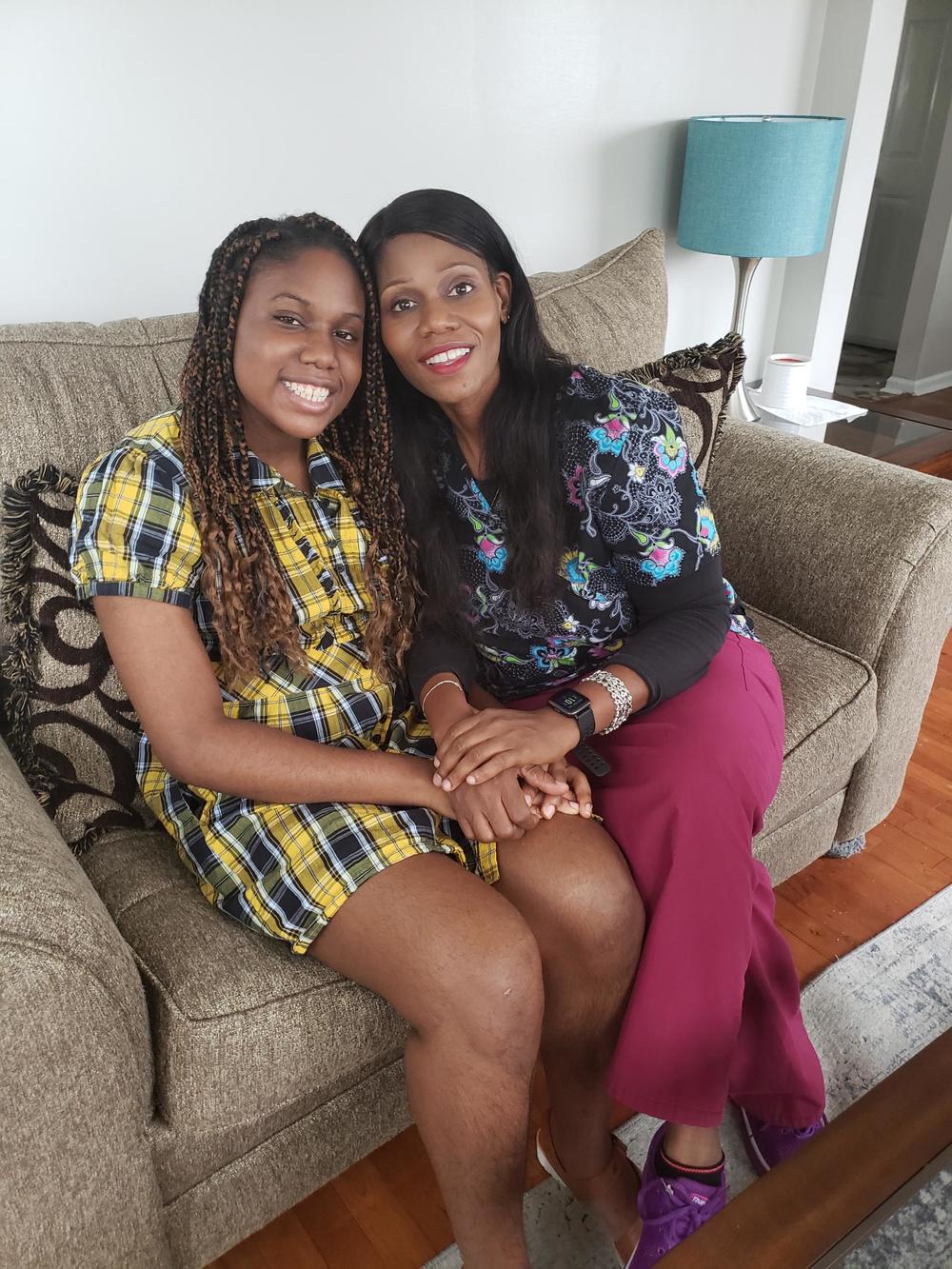
"The dog found her there," Agazie said. "He could have killed her that night … and he acted like he didn't know what was going on."
Immediately following that incident, Agazie took Lindsey to Piedmont Atlanta Hospital because she refused to go home. They were forced to sit in a psych room until staff was able to find a placement for Lindsey. They sat for hours.
"I told them at Piedmont, 'Please, can I go home?' I have to go home and sleep for six hours and come back while she's there. They told me if I leave her there, they will call DFCS on me and get me arrested," Agazie said. "So, I had to sit there for eight hours, and my son was home by himself."
Lindsey eventually wanted to go home, but her mother Agazie was mentally struggling. She was frustrated and exhausted, working full-time as a nurse while caring for three children - including one who was risking her safety by leaving home.
"I was getting suicidal myself because each time she runs out, I'm right [there] chasing them home with her," Agazie said. "I'm not sleeping because I don't know when she's going to elope (leave) again. So I'm not sleeping at home, but whenever she runs out, I'm outside looking for her."

Agazie said she filled out forms with the DBHDD two months ago, but she hasn't received any response. She wants to advocate for her daughter the best way she can as her mother.
"She's a sweet girl. Autism is a neurological disorder. Sometimes I don't know what's going on and they can't express themselves," she said. "So, as a parent, I have to advocate for her. I have to know what she's feeling."
Contention came to a head when Agazie was trying to de-escalate Lindsey's behaviors and take her home on May 17 after she went to the Family Dollar for chips. When Agazie realized her daughter was missing, she executed her new routine - call the police and find Lindsey.
Agazie found her, paid for the chips on her daughter's behalf and tried to coax her in the car. When Lindsey saw the police, she tried to put the chips back.
"She knew it was wrong, but I already paid for it. And when she brought the item back, I grabbed the bag from her and said, 'You shouldn't have taken it in the first place,'" Agazie said. "She hit me, and the cop saw that."
The police arrested Lindsey.
"It took three officers to pull her on one arm and pull her down to the floor," Agazie said. "They almost ripped her arm off."
Agazie tried to intervene, but the officers threatened to arrest her.
"I was telling them she's not well [and to] just leave her. I'll take her home. I just need to take her home to give her her meds," Agazie said. "They arrested her and took her to [an] adult jail in Clayton County, and she's 17."
Lindsey was charged with battery. Agazie explained to the police, prison nurse and eventually the police lieutenant that Lindsey shouldn't be in jail.
"I told them that she's not well, she's autistic, and it's been documented by her doctor. She goes to Marcus [Institute]," Agazie said. "So they put her in front of a judge, and the judge … gave her a bail of, I think, almost $5,000. And I'm like, she doesn't even comprehend what the judge is telling her."

Agazie paid the bail and took Lindsey home on May 20. She's been trying to get legal help ever since, but COVID-19 slowed down the process.
In the meantime, Agazie is struggling and sometimes questions her parenting.
"Sometimes you feel like, are you doing the best for her, or is she better somewhere else?" she said. "But I don't think she'd be better [somewhere else]. I think she's better with me as her mother because I know what she's thinking."
Agazie doesn't want to relinquish Lindsey to the state. She wants intense state-funded care and behavior modification therapy for her daughter so she could have a quality life at home.
"She knows that I love her, and she knows I'm trying to do the best," Agazie said.

April Bonaccorsi has two children, and her oldest, Bradley, has autism. His behaviors quickly became aggressive when he reached puberty, endangering himself and his younger sibling.
"It takes a few different adults to try and contain him because he sees red, and it's not necessarily his fault," Bonaccorsi said. "He just doesn't know how to express himself in the manner that is beneficial for himself and his family."
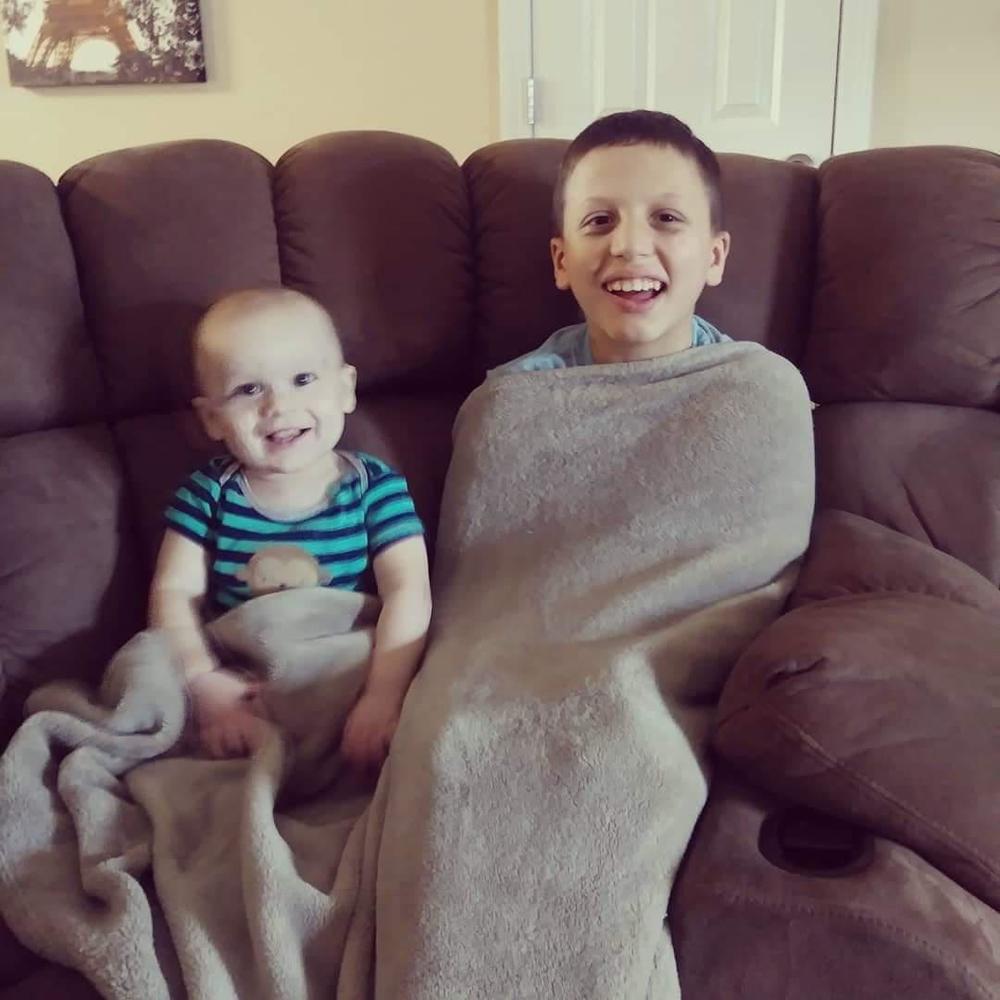
Bonaccorsi and Bradley's father enrolled him in speech and occupational therapy at Chatterbox - a therapy center in Pooler - to improve his behavior and give him better tools to communicate with others. However, he was eventually removed from the therapy center due to his aggression.
At the time, applied behavioral analysis (ABA) therapy wasn't covered in Bradley's insurance, and without insurance, it would have been too expensive for Bonaccorsi to afford.
"We were struggling to get by, and we were told that without ABA therapy, he wasn't going to benefit from occupational therapy and speech therapy and play therapy," Bonaccorsi said. "And then his behaviors increased."
Bradley would fight, thrash and throw things at other people. He'd cling onto Bonaccorsi's leg and bite her, gripping her so tight that she'd need assistance to free herself from his grasp. His aggression made her fear for her youngest child's safety.

Bonaccorsi sent Bradley to Springbrook Autism Behavioral System in South Carolina in 2019, four hours away from their home in Statesboro, in hopes to modify his behavior and make his aggression more manageable.
It was one of the hardest decisions Bonaccorsi had to make.
"I mean [I feel] awful," she said. "A part of my heart is gone, so not being able to have physical contact with him is excruciating."
Bonaccorsi is only able to see Bradley every few months for a couple of hours at a time, and although he's seemingly well-behaved when she visits him, she knows it's very likely he's heavily medicated to subdue him.
"He's my whole heart, so I'm grateful that it's been a good experience every time," Bonaccorsi said. "But a visit versus a 24-hour period is completely different."
During his stay at Springbrook, Bradley's tooth chipped when allegedly falling out of his bed, and Bonaccorsi said his behaviors haven't improved at all.
"I mean, it's not his fault. It's nobody's fault. But I was really hoping that he would get some sort of behavioral therapy that could help him cope with these behaviors or a new way to really communicate so he wouldn't get to the level of that frustration," she said. "That's my main concern. We don't have the resources set up, although we're trying. There's a waiting list for everything."
In December 2019, Bradley's father died of suicide. Bonaccorsi said he felt helpless in Bradley's circumstances and was struggling with not being able to see him every day.
"I didn't have it in my heart to tell Bradley that his father had passed when he's at Springbrook. I wanted to wait when he came home, essentially just because I don't want strangers to console him," she said. "I know that's awful. I haven't had it in my heart to tell him."
Bonaccorsi has been balancing grief and motherhood ever since. Being 15 minutes away from Bradley, he would help de-escalate aggressive behaviors, give Bonaccorsi breaks when she needed them and loved his son unconditionally. He was the support she and Bradley needed.

"I think once Bradley went into Springbrook ... I felt like he was like ... he could go now. I don't know how to explain that," Bonaccorsi said. "I don't think he felt like there was anything he could do to help Bradley or there's anybody that was going to be available to help him."
Bradley will be returning home on Aug. 1, 2020, and Bonaccorsi doesn't think he's ready to return. He's gained 40 pounds in a year. He's gotten stronger. His younger sibling talks now and is more keen to socialize. Bonaccorsi fears for her family's safety, Bradley included.
"When he comes out, I'm scared. I hate to say that. I love my child so much, and I miss him, but I know that he's not ready to come home, and I don't know what I'm going to do when he does," Bonaccorsi said. "I don't know how I'm going to survive. And more importantly, I don't know how I'm going to keep him safe and his little brother safe without basic services."
Bradley's behavior hasn't improved within the year he’s been at Springbrook, and Bonaccorsi isn't allowed to extend his stay. She has no state-funded disability services that would provide Bradley therapy he needs to control his aggression. Once he's home, Bonaccorsi also won't be able to work full-time.
Prospects for Bradley's behavioral and social growth are potentially devastating with tremendous cuts to services Bradley could benefit from - including the Matthew Reardon Center for Autism in Savannah, a year-round educational center for children with autism that provides specialized learning approaches grounded on ABA therapy.
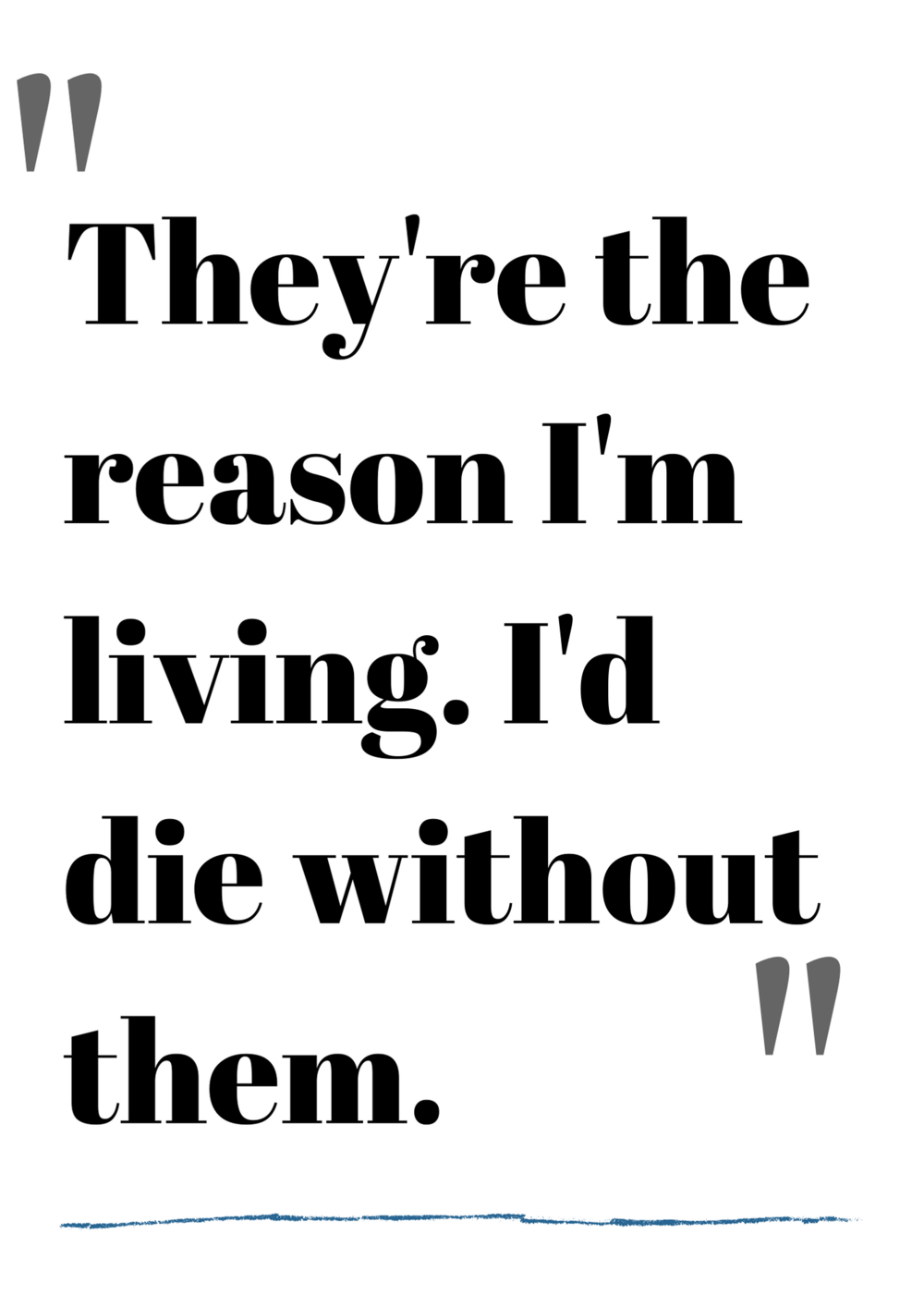
"There's no therapeutic home available for you until he's 18, unless I hand him over to DFCS, and I could never do that. I could never put my child [in DFCS]. They call it therapeutic foster care," Bonaccorsi said. "And it's like the children who go through foster care with a regular mind barely make it out of the system not broken. So for my son who cannot communicate, I wouldn't be able to protect him."
Bonaccorsi wants nothing more than to provide a quality life for her children. She wants Bradley home to get the support he needs to manage his aggression, identify his triggers and continue loving his family in person. She'll never stop fighting for her family.
"Bradley and his little brother are above and beyond. They're the reason I'm living. I'd die without them. I just want him to know that he's loved and that I will never stop trying to help him," Bonaccorsi said. "I'll always be here to protect him the best I can. That's the goal."
Granted, these proposed budget cuts are not set in stone. Funds could be moved across agencies to better support disability services. More skilled staff could be hired to rehabilitate and provide therapy to children and adults with disabilities. Institutions could be better equipped to provide specialized education for people with disabilities to improve self-sufficiency and independence.
However, those prospects are extremely uncertain. Thousands of families have been on the waitlist for the NOW/COMP waiver programs for years. Parents continue to struggle balancing employment and parenthood. Increase in stress leads to social isolation and mental instability. Even at the peak of crisis and emergency, Georgia still makes underwhelming strides to provide support to families in need. The budget cuts call for a reduction in assistive technology funds, reductions in autism centers' funding, very limited increases in NOW/COMP waiver program slots and furloughing staff who work within disability service agencies.
The state will vote on the budget by Friday, June 26 before the current legislative session ends.
If the budget is approved, the consequences could be brutal.
"If you have a child that's aging out of care, what happens to that child? Do they hit the streets? And they have been developmentally stunted because they've been bouncing from institution to institution, and now they're out of state care, they have no support," Orland said. "So how does that value humanity? Is that really what we're about?"

